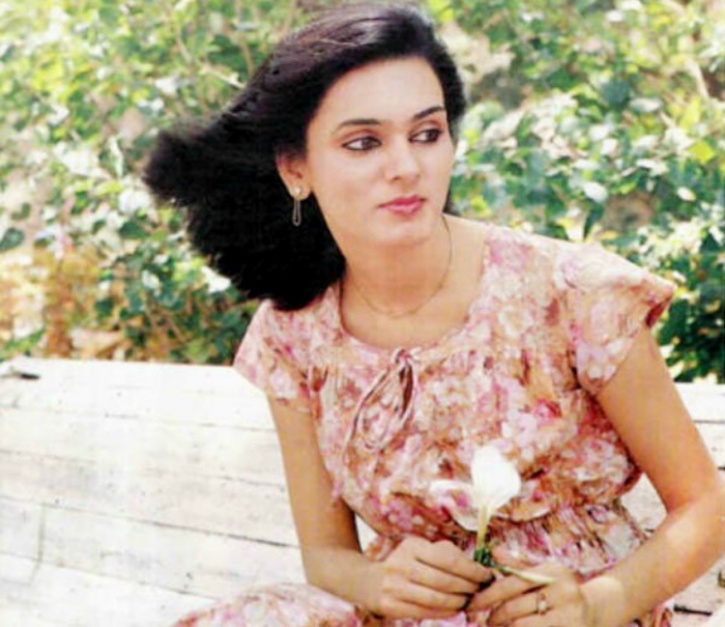
*Now the world knows Neerja Bhanot’s story, all thanks to Sonam Kapoor’s realistic and apt portrayal of Neerja.
*It’s Sonam Season In Bollywood. Neerja is turning out to be for Sonam what Queen, Cocktail and Paa were for some of her peers. The question was always going to be, can Sonam Kapoor, carry off that demanding role? Answer is yes.
These are only some of the headlines and summaries of articles post the release of the bipoic Neerja. For those who were not living under a stone in the 80s and read the newspapers and watched TV, Neerja Bhanot was and is more than a woman supposedly made famous by Sonam Kapoor. And is that what a biopic is supposed to do? Validate an actor rather than stay focussed on telling a story? Tell me once again, why while watching Paan Singh Tomar, we did not comment, “Oh wow, Irrfan is so good in this!” It was because there was no difference between him and the protagonist. Because the film was not about him. For many of us, Neerja even before the Pan Am tragedy made her a global hero, was the beautiful girl in the TVC for Charmis. I remember this TVC the most for some reason. Tall, with eyes full of childlike wonder, she hugged herself as she walked though mist and then there was a close up of her face. A face that branded itself on our memory when we learnt she had been killed in Karachi while helping passengers on a terror struck plane.
**
The ad kept on playing long after she was gone, making us all wince at the irony. As for the film, let me say this at the onset. Neerja is well-intentioned and cleverly shot as it shows us how a quietly resolute young girl survived a nightmarish marriage to stand in her power and build a triumphant life from scratch. Her relationship with her parents, the warmth spilling out from every corner of a cosy home where her well-loved dog is attuned to her every joy, every loss (It is hard not to sob helplessly at the end when the door shuts and the family leaves to bring Neerja home one last time and the little confidante is resentful of being left behind and looks out of the window wistfully), all show how much love, joy and pride was invested in this daughter. There is a certain reassuring lack of gloss in the film. And primal triggers that make us imagine what it must be like to be trapped in a dead end situation. For me the defining line was, “In our culture..brothers are called, ‘veer’ (the brave one). You tie rakhi to boys hoping they will protect you. Ladkiyon se toh koi nahin kehta ki hamari raksha karo. I always told her to protect herself first. I don’t know how she became so brave.” This is a line that Neerja’s screen mother says right at the end and then also subtly debunks the notion that only a son can be a “kul ka deepak.” We needed to hear this message in a society where water-tight gender roles brand daughters as responsibilities to be dispensed with rather than potential heroes. Imagine if Neerja had not received her family’s support to walk out of a bad marriage, did not have the confidence to start a new life and to then to face death with steel in her nerves.
**
But. I had to ask myself in the end if the buzz around the film had served Sonam rather than the woman the film was about. As activist Harish Iyer pointed out in a post recently, most of the viewers left the hall even before the showreel of the real Neerja’s pictures had ended. I also had an issue with the way the film nowhere shows us how Neerja was trained to think on her feet. She had an enormous sense of integrity and courage but it was her training that had equipped her to use these attributes well. Instead we see the heroine bowing before a godly altar at home just before leaving her house before the fateful flight and this image comes immediately after we are shown terrorists getting ready for an unspeakable mission as they loudly proclaim their own brand of faith. There is also this banter between Neerja and her mother about a propitious ring that the former has lost just before what turned out to be her last flight. Neerja was first and foremost a global citizen who did what she did because duty came first to her and she put her passengers’ safety before her own. Whether she was god loving or god fearing or whether her spunky mother was as superstitious as she is shown to be in the film is not something relevant to this narrative. The makers also show us the token good men from another faith. One is a taxi driving chacha and another a radio operator who loves Amitabh Bachchan. Okay, then.The writing was lazy too most of the time. To rub in the “Zindagi badi honi chahiye, lambi nahin’‘ message, Anand and Rajesh Khanna are invoked again and again. Everyone is calling everyone Babu Moshai. And was Neerja really made to sing, ‘Mere Sapnon Ki Rani’ by the terrorists? Did she really send a dialogue from Amar Prem as her last message to her mom?
**





